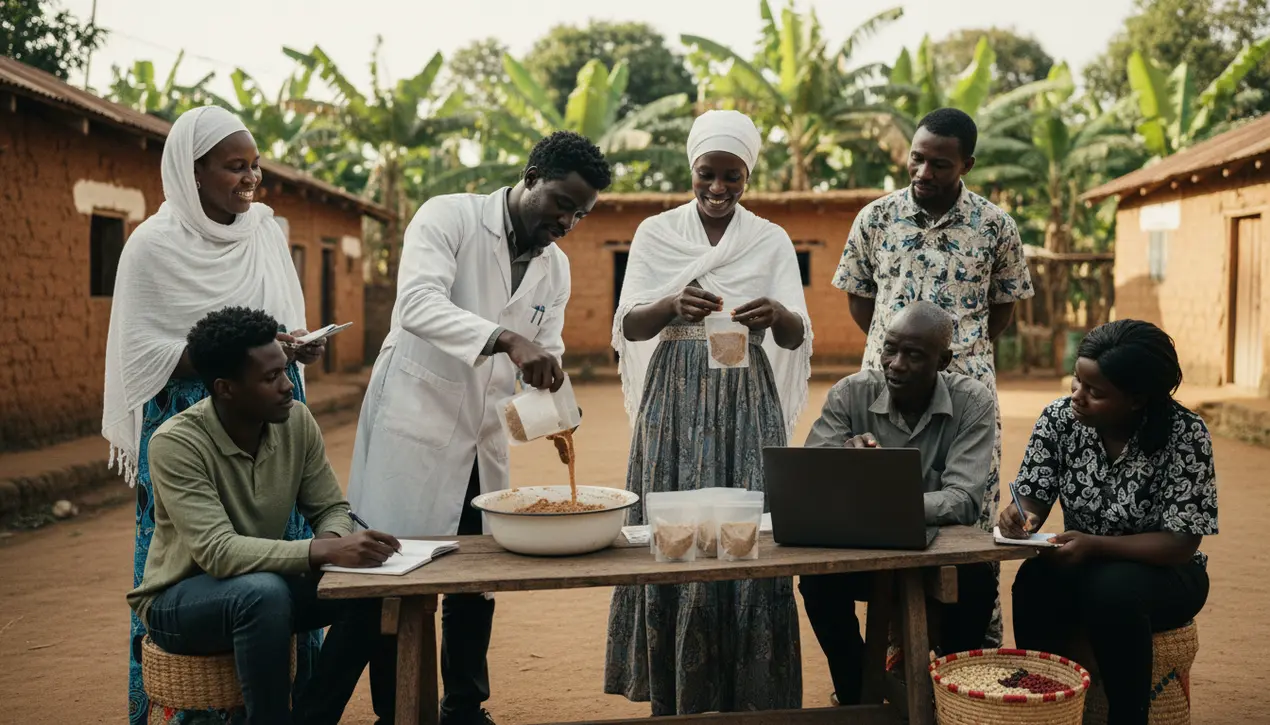
Otherfood & diningSustainable Eating
Grassroots Architects: Building Resilient Global Health from the Ground Up
RA
Rachel Adams
3 hours ago7 min read1 comments
As traditional development models strain under the weight of multiplying crises, a more durable form of progress is emerging from the world's communities. A new generation of local innovators—nurses, food pioneers, and environmental advocates—are engineering hyper-local solutions to systemic global health challenges.Their work, grounded in deep community trust and practical knowledge, demonstrates that the most effective interventions are built from the street upward. These leaders are not just delivering services; they are constructing the very architecture of a more resilient and equitable future.In Rwanda, Jean Paul Gisa and Sarah LaHaye are tackling malnutrition and environmental degradation with an elegant, closed-loop solution: a textured vegetable protein made from locally grown legumes. This innovation provides an affordable, nutrient-rich meat alternative while creating economic incentives for farmers to plant soil-enriching crops.Their approach addresses interconnected problems with a single, sustainable model. Across the continent in Nigeria, Hakeem Jimo is proactively building Africa's plant-based food sector.Through his pioneering restaurant, Veggie Victory, and now VChunks—a wheat-based protein designed for West African cuisine—he is creating a sustainable pathway to meet the continent's rising protein demand without the ecological devastation of expanded animal agriculture. The fight for public health extends into the critical realm of mental well-being, where Hauwa Ojeifo in Nigeria is shattering stigmas.After navigating a system with only 250 psychiatrists for over 232 million people, she founded She Writes Woman, providing 24/7 helpline support and free tele-therapy. Her advocacy, which has reached Nigeria's National Assembly, embodies the principle of 'nothing about us without us,' ensuring those with lived experience lead the conversation about their care.In India, Khyati Gupta's Pinkishe Foundation confronts the silent crisis of period poverty—an issue that forces one in four girls to miss school monthly and leads to 23% dropping out entirely. By distributing over five million pads and providing essential menstrual education, her work challenges a deep-seated taboo that perpetuates inequality, proving menstrual health is a fundamental necessity, not a luxury.Meanwhile in Kenya, Phyllis Omido's relentless activism demonstrates the power of community mobilization. Sparked by her own son's lead poisoning from a battery smelter, her organization forced the plant's closure and, after a decade-long legal battle, secured a landmark Supreme Court ruling establishing a $5 million cleanup fund—a precedent-setting victory for environmental justice.These organizers share a crucial understanding: sustainable change requires intimate knowledge of local contexts—the bus routes, languages, and community dynamics that never appear in grant proposals but are essential for building trust. In an era of global volatility, this hyper-local reliability is development's most undervalued asset. Their work proves unequivocally that the people closest to the problems are already engineering the most elegant solutions.
#global health
#local organizers
#sustainable food
#plant-based protein
#mental health
#period poverty
#environmental justice
#featured
Stay Informed. Act Smarter.
Get weekly highlights, major headlines, and expert insights — then put your knowledge to work in our live prediction markets.
Comments
Loading comments...
© 2025 Outpoll Service LTD. All rights reserved.